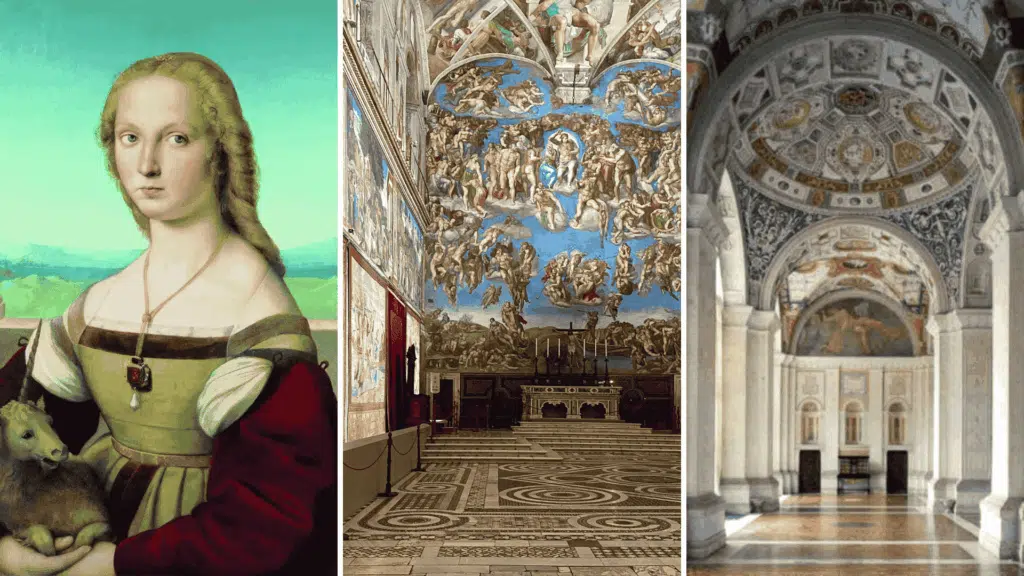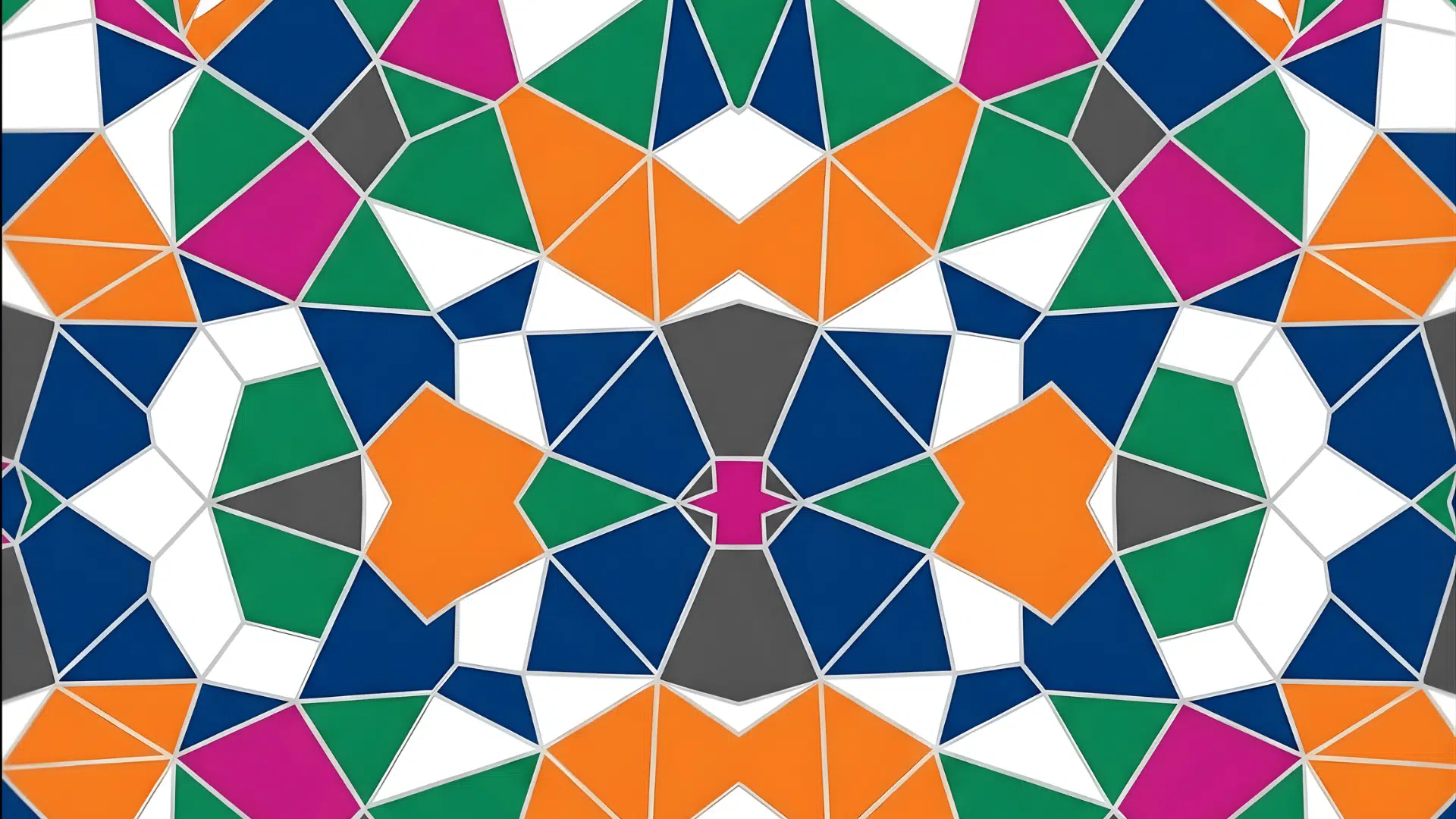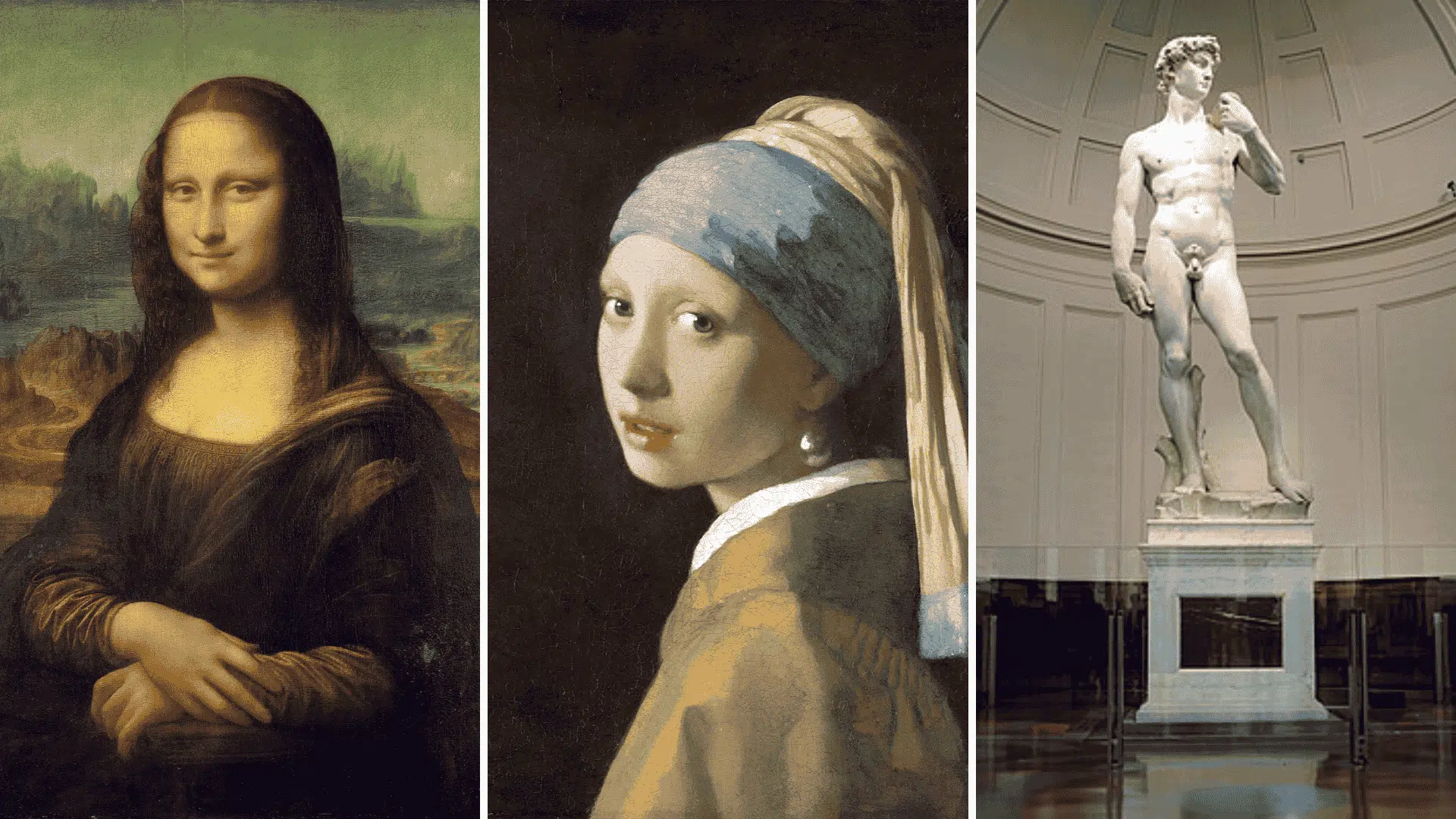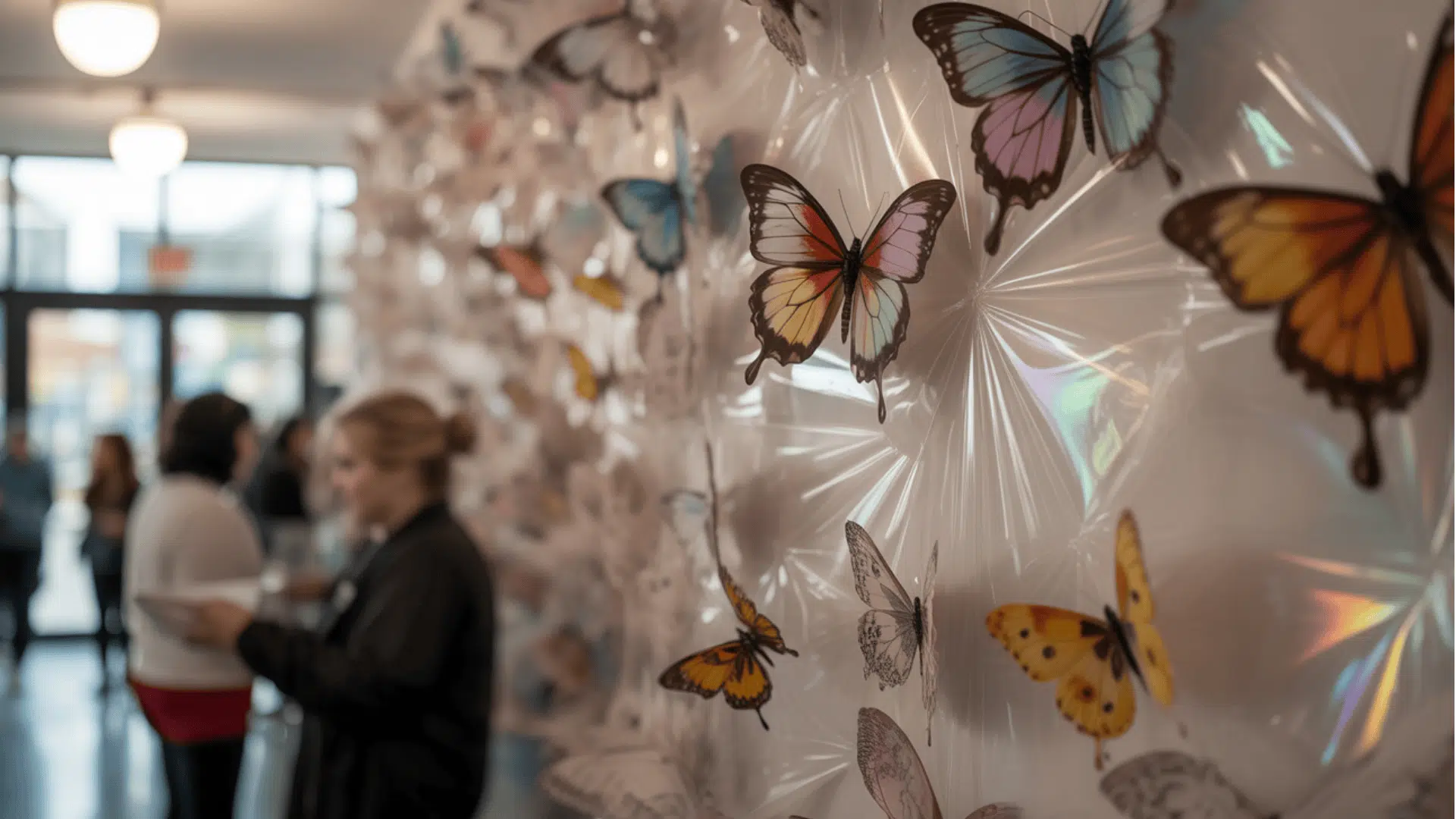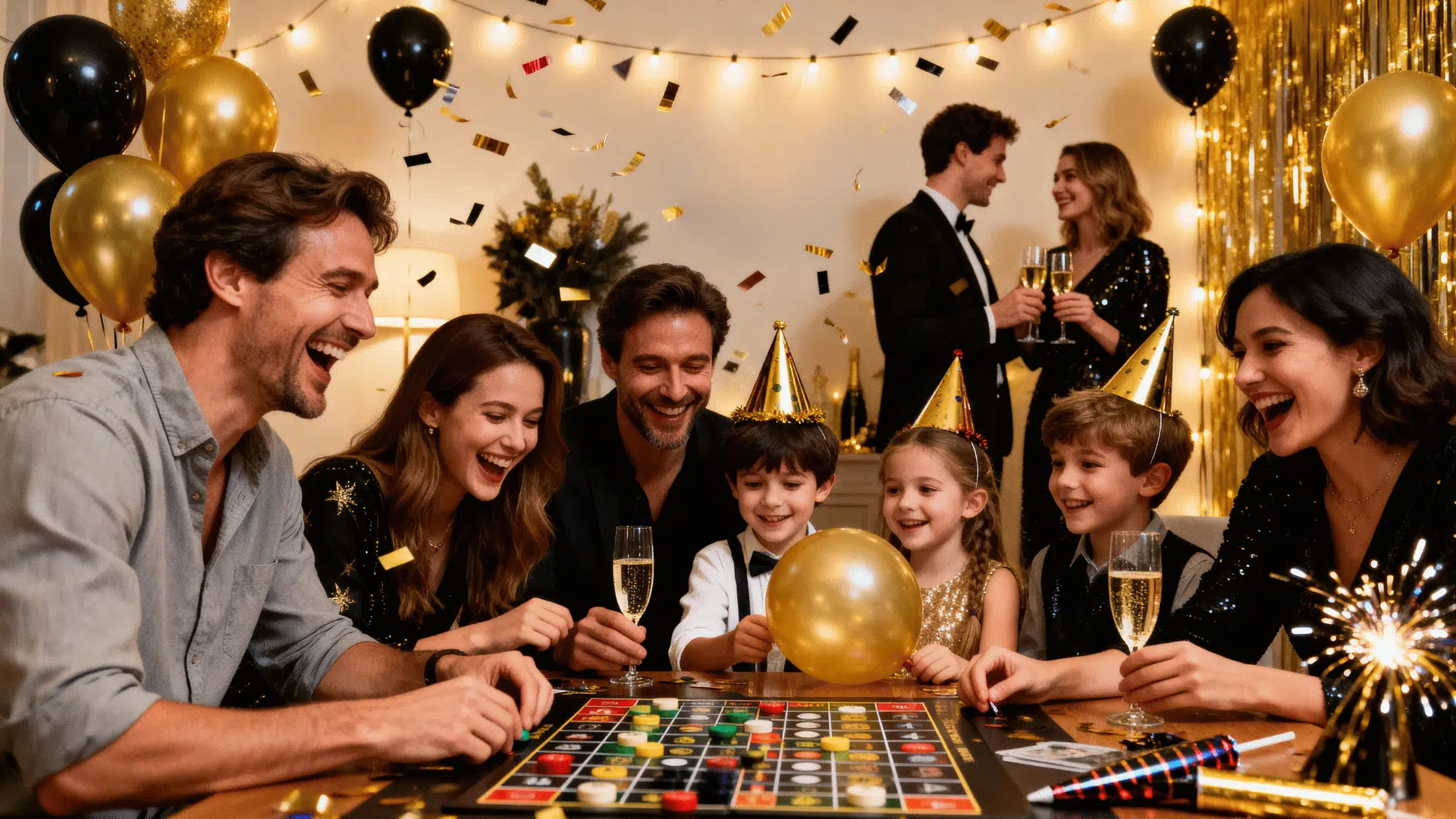Born in 1483 and passing in 1520, Raphael Sanzio left a legacy that stretches far beyond painting.
His art shaped how stories are told visually, laying the foundation for what we recognize today as Renaissance harmony and grace.
This collection takes a closer look at Raphael Sanzio’s paintings, from his grand Vatican frescoes to his tapestry designs and architectural works that defined the High Renaissance.
These pieces show why Raphael’s artwork continues to move people centuries later.
Raphael’s Artistic Vision During the High Renaissance
Raphael’s artwork stood out for its calmness and clear charm.
Every line felt deliberate, every figure peaceful yet alive. His paintings didn’t try to overwhelm, but they invited reflection.
While Leonardo da Vinci focused on detail and Michelangelo on power, Raphael found strength in simplicity. Raphael Sanzio’s paintings’ big ideas, like love, faith, and reason, feel natural and human.
That sense of order carried into his architectural work, where light and proportion became part of his signature style.
Raphael showed that art could be thoughtful and warm at once, which shaped artists for centuries to come.
Raphael’s Most Celebrated Paintings and Frescoes
Below are his most admired paintings and frescoes that continue to inspire and move people centuries later. Each one highlights Raphael’s eye for detail and storytelling.
1. The School of Athens
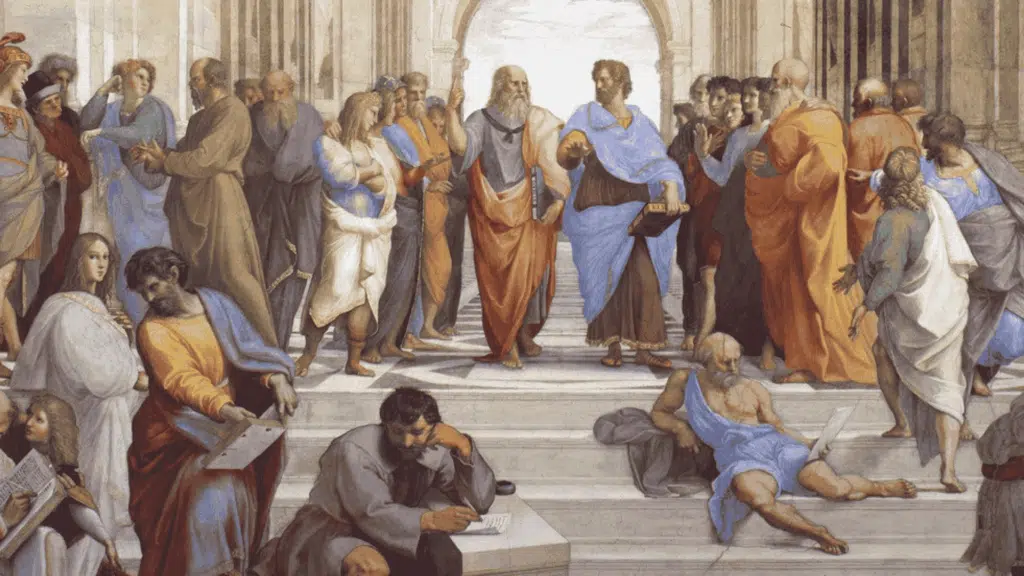
Source: museivaticani.va
Perhaps Raphael’s greatest masterpiece, this fresco celebrates knowledge and philosophy. It shows ancient thinkers like Plato and Aristotle surrounded by symmetry and light, turning ideas into a visual dialogue.
It represents the pure essence of Raphael artwork. Every figure seems alive in thoughtful motion, reflecting the artist’s deep respect for learning.
2. The Sistine Madonna
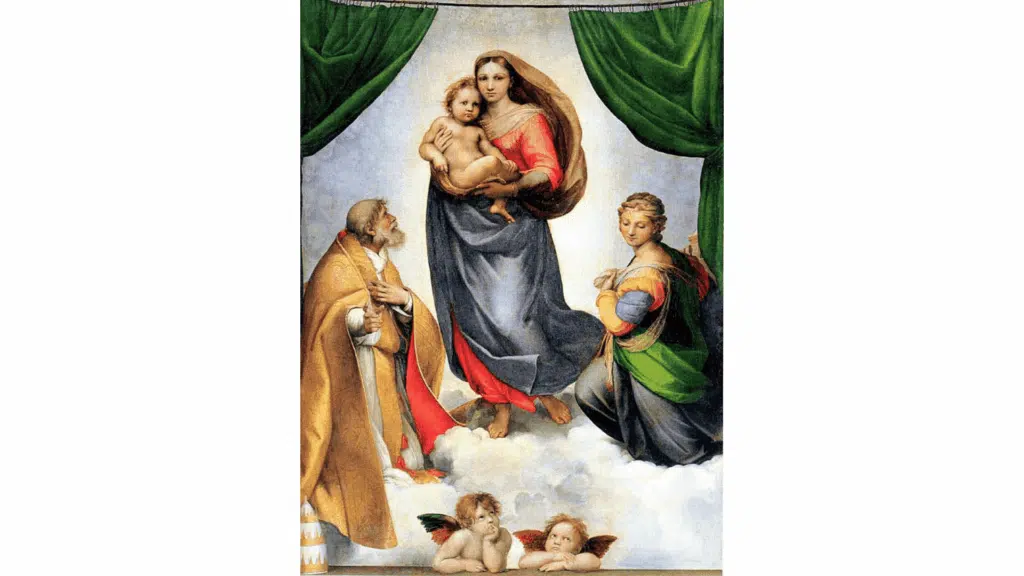
Source: italian-renaissance-art
One of his most famous paintings, it features the Virgin Mary holding baby Jesus, surrounded by soft clouds and cherubs.
The gentle expressions and glowing light give this painting a divine calmness that still feels human and close.
3. The Transfiguration
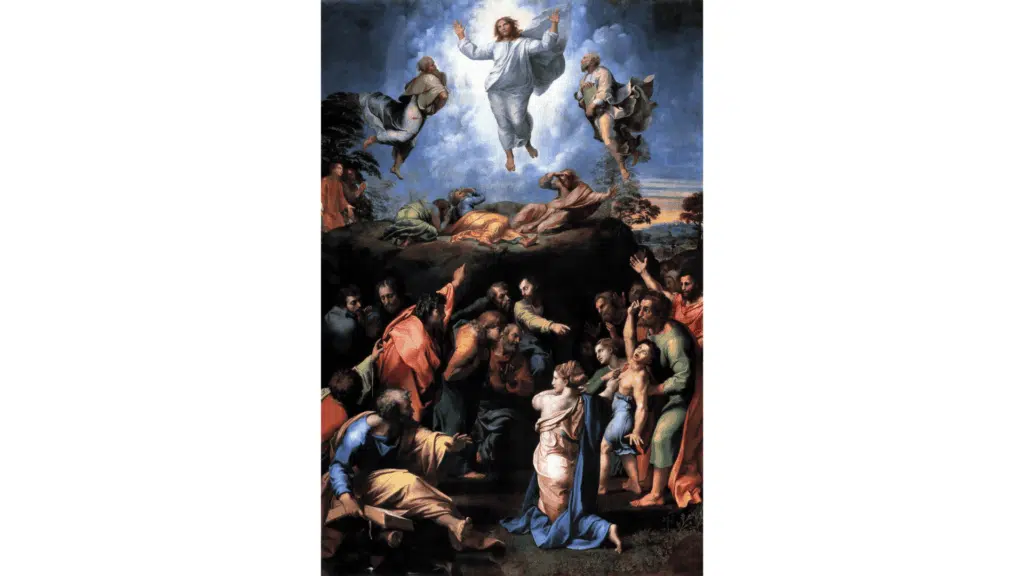
Source: wikipedia.org
Completed shortly before his death, this masterpiece blends two biblical moments: Christ’s transfiguration and the healing of a possessed boy.
The contrast between heaven and earth shows Raphael’s skill in emotion and light. The scene’s energy feels both spiritual and deeply human, marking a powerful end to his life’s work.
4. The Madonna of the Meadow
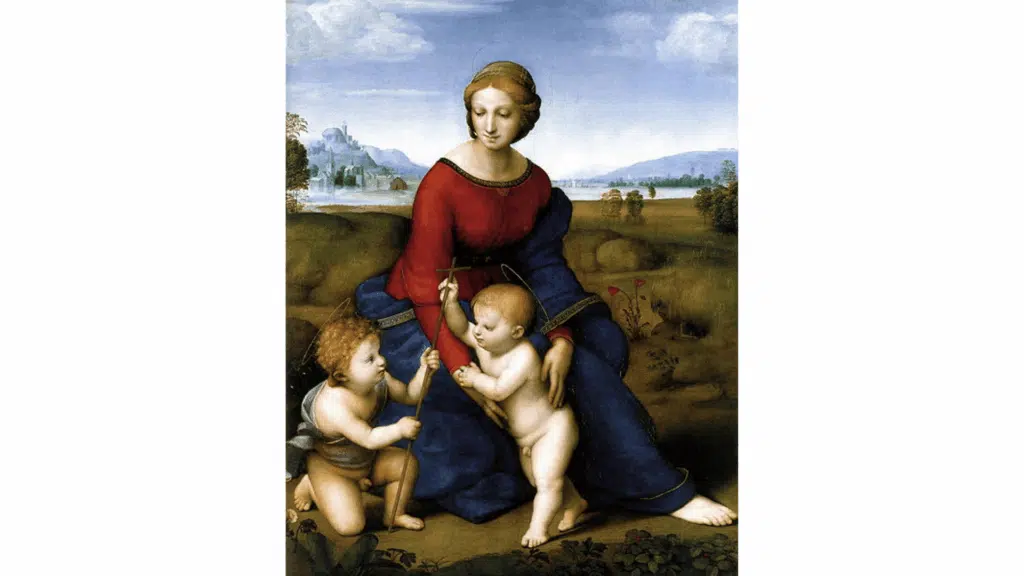
Source: italianrenaissance.org
A serene image of the Virgin Mary with the infant Jesus and John the Baptist in a soft, sunlit landscape. The scene’s peaceful balance captures Raphael’s love for grace and maternal softness.
The calm horizon and warm tones give this painting a feeling of hope and protection.
5. The Triumph of Galatea
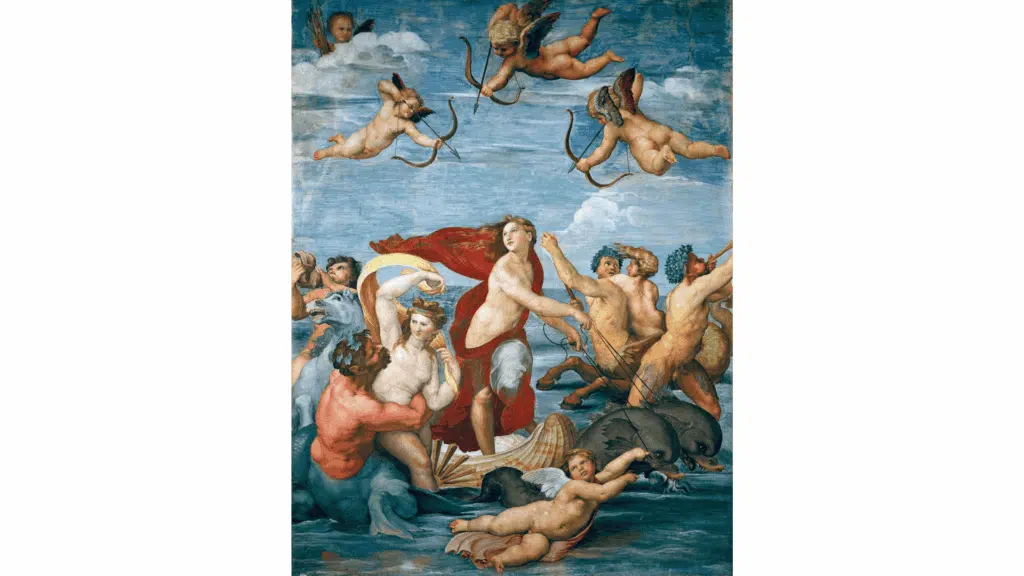
Source: historytoday
Painted for the Villa Farnesina in Rome, this lively fresco celebrates classical myth. The sea nymph Galatea rides a shell-drawn chariot, surrounded by joyful creatures.
Every curve and wave moves with rhythm, showing his mastery of movement and joy.
6. The Alba Madonna
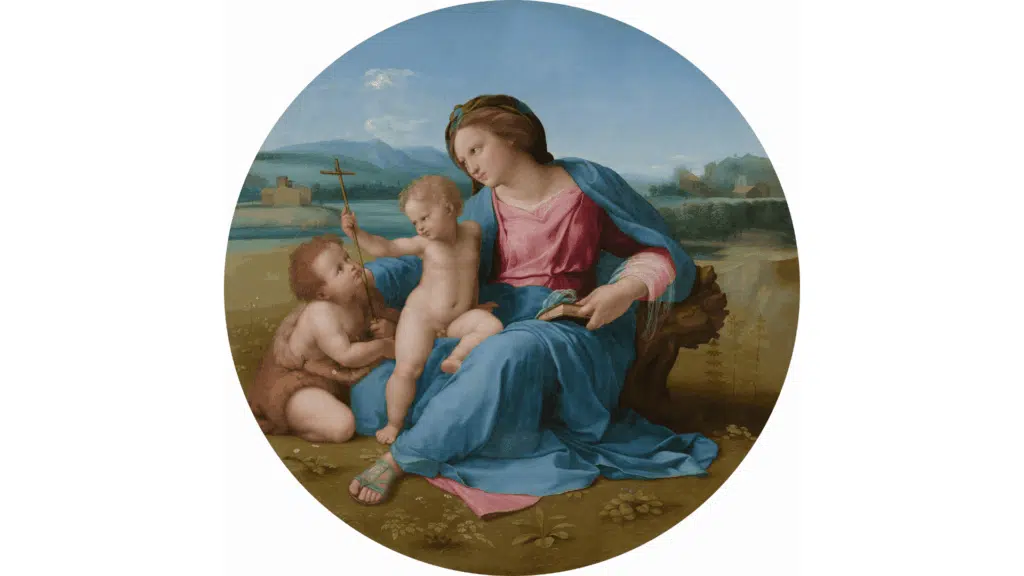
Source: nga.gov
Set in a circular frame, Mary sits on the ground with the infant Jesus and John the Baptist. The natural landscape and expressions reveal Raphael’s deep connection to human warmth and nature.
The round composition draws the viewer in, making the moment feel tender and real.
7. The Small Cowper Madonna
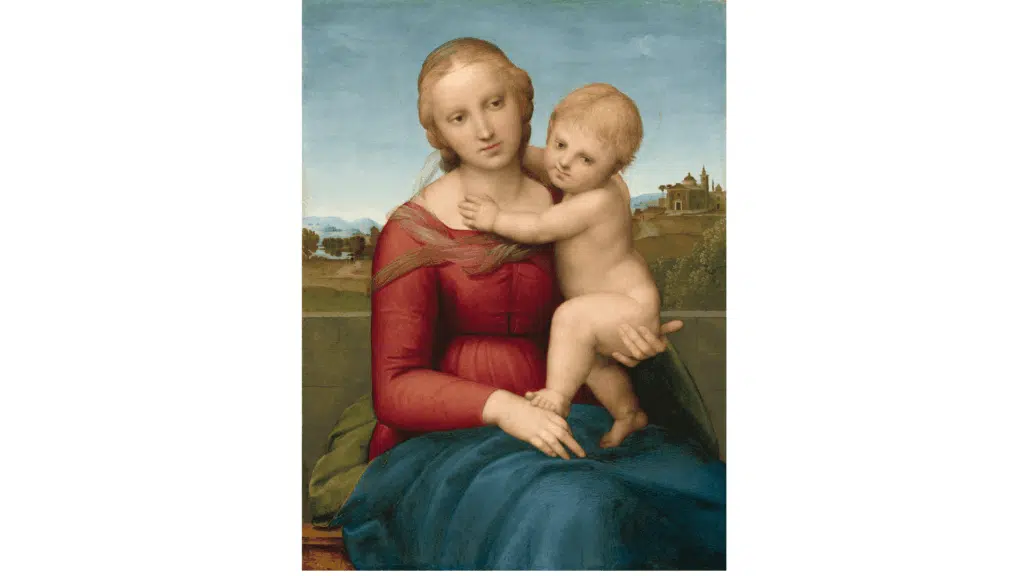
Source: arthistoryproject
An early work showing the Virgin Mary in a peaceful countryside. The simplicity of color and gentle light reflect Raphael’s growing confidence and his focus on emotional realism.
The quiet charm of this painting shows his ability to find beauty in everyday peace. Its natural background and soft tones make it feel like a glimpse of calmness frozen in time.
8. La Donna Velata (The Woman with the Veil)
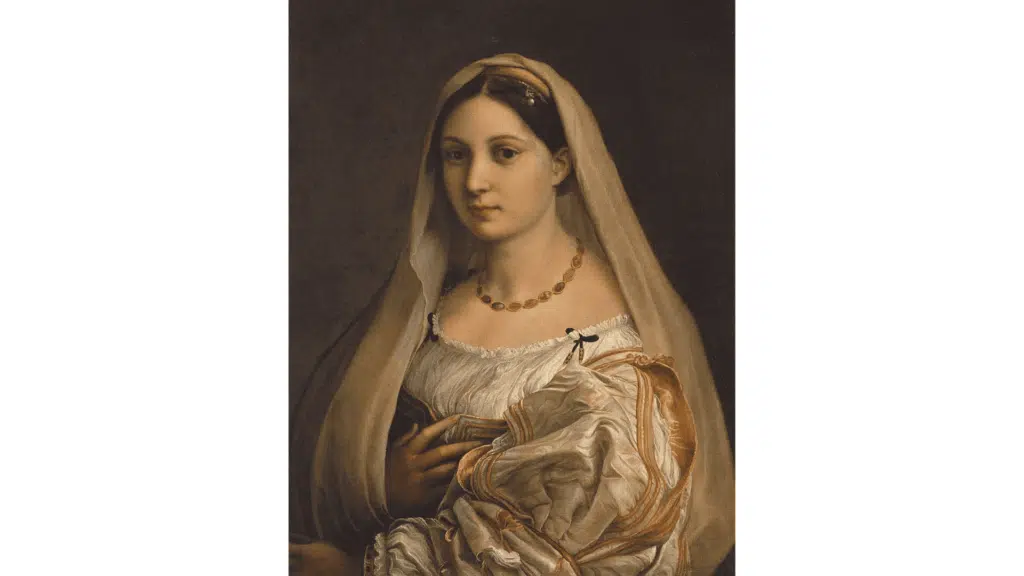
Source: wikipedia.org
A portrait believed to depict Raphael’s muse, this painting shows a woman in soft fabric and warm tones. Her gaze is calm yet powerful, showing his gift for portraying subtle emotion.
The warmth of her expression reveals both strength and softness, a true reflection of Raphael’s sensitivity.
9. Madonna Della Seggiola (Madonna of the Chair)
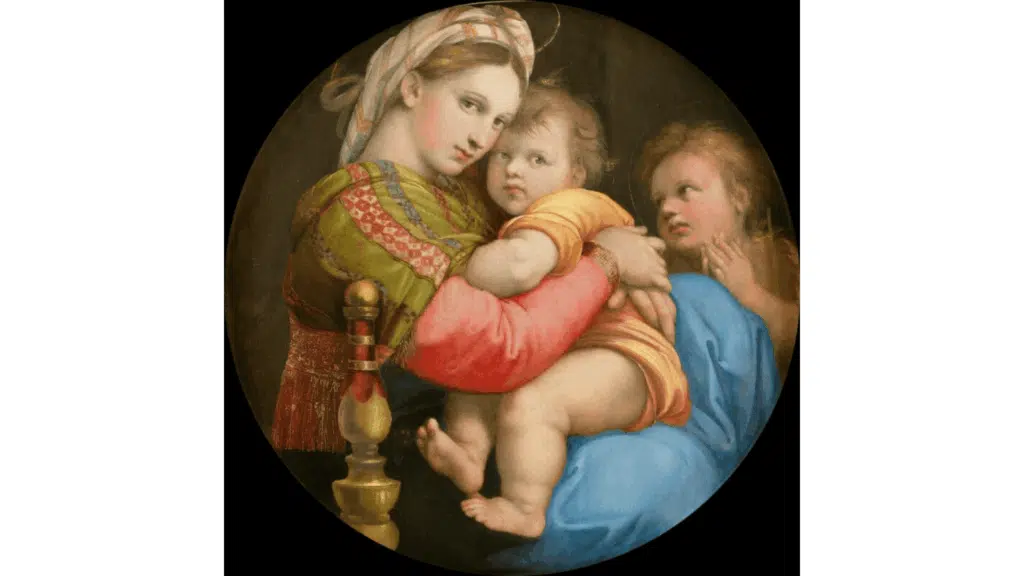
Source: haltadefinizione
Painted in a round format, it shows Mary cradling baby Jesus with loving intimacy. The circular frame draws attention to their closeness, a hallmark of Raphael’s emotional storytelling.
The tender posture and rich color make it feel comforting and full of life.
10. The Marriage of the Virgin
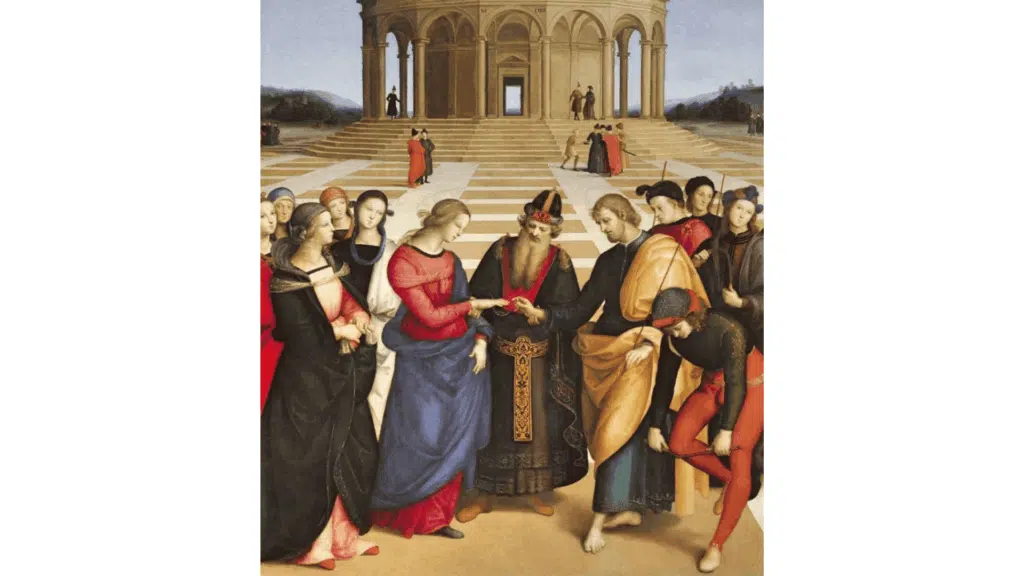
Source: theartpostblog
This early masterpiece shows the wedding of Mary and Joseph, framed by a domed temple that demonstrates Raphael’s understanding of perspective.
The calm symmetry hints at his later architectural talent. The gentle colors and balanced figures create a perfect sense of unity and devotion.
11. The Disputation of the Holy Sacrament
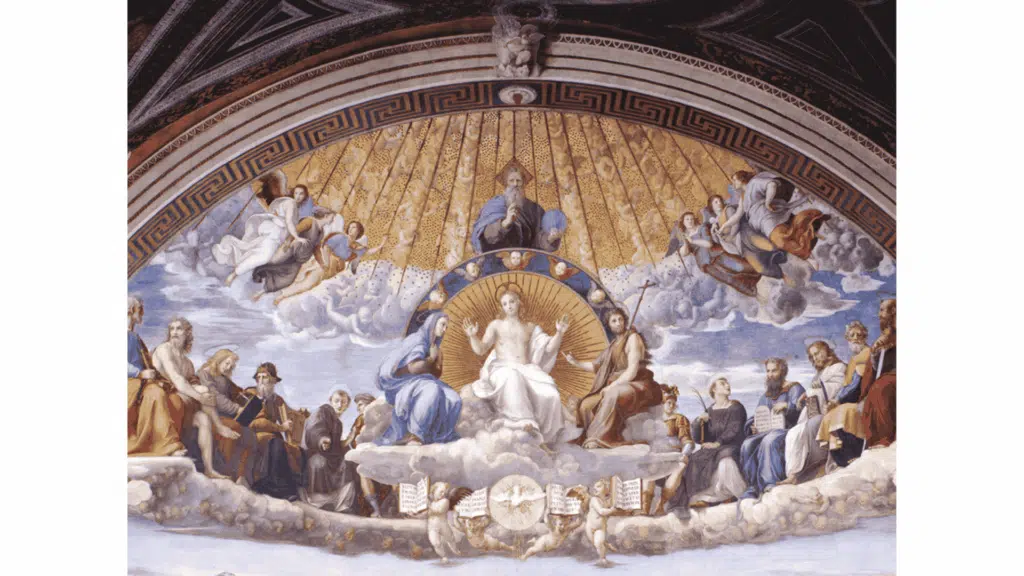
Source: museivaticani.va
Another grand Vatican fresco shows heaven and earth united through faith. Saints, scholars, and angels gather around the Holy Sacrament, expressing divine order and human devotion through perfect composition.
It captures Raphael’s ability to merge theology, philosophy, and art into one peaceful vision.
Each of these masterpieces reflects Raphael’s belief that beauty and meaning belong together. His paintings remain a bridge between the spiritual and the human expressions of peace and purpose.
Raphael’s Tapestries and the Sistine Chapel Cartoons
Below are Raphael’s finest tapestry designs, created for the Sistine Chapel under Pope Leo X. They reveal how his imagination turned faith into art that still inspires awe today.
12. The Miraculous Draught of Fishes
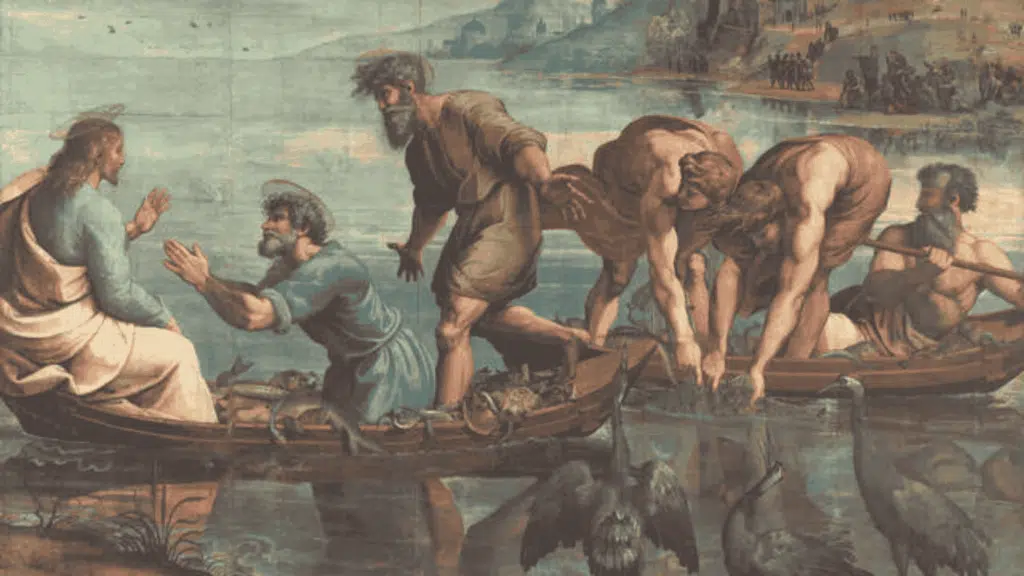
Source: vam.ac.uk
This tapestry shows Christ standing on the shore as Peter hauls in a net overflowing with fish. The scene captures faith and obedience, with calm light and gentle movement across the water.
The reflections and figures feel alive, as if part of a peaceful morning. It remains one of the clearest examples of storytelling through Raphael artwork.
13. Christ’s Charge to Peter
Source: ncregister
Here, Christ gives the keys of heaven to Peter, symbolizing leadership and faith. The figures stand in a perfect semicircle with a domed temple behind them, showing Raphael’s skill in perspective.
This design became one of his most admired works of faith.
14. The Healing of the Lame Man
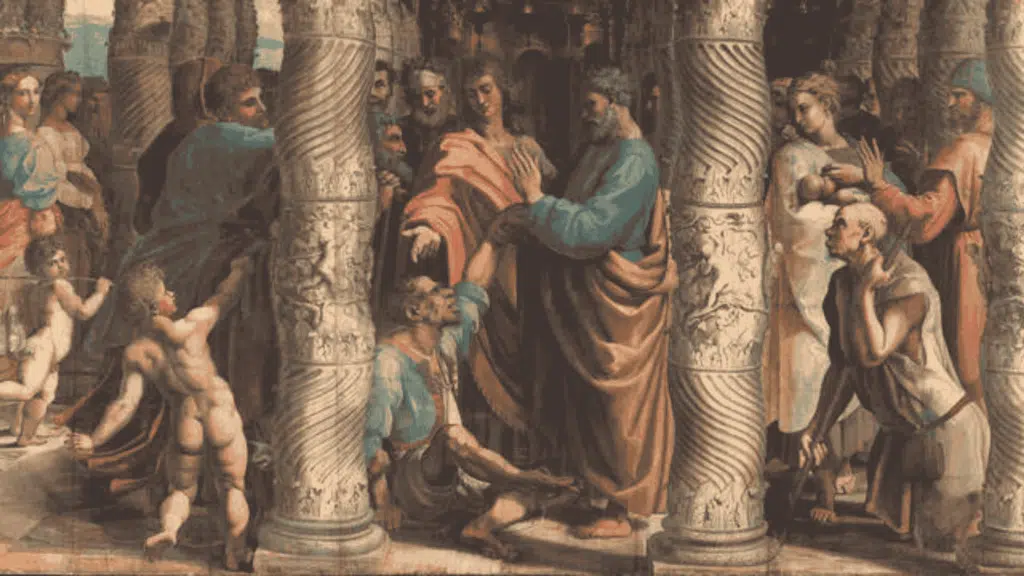
Source: vam.ac.uk
This scene shows Peter and John healing a crippled man at the temple gate. The background architecture frames the figures with clarity, guiding the eye toward the miracle.
Raphael filled the faces with emotions, such as surprise, gratitude, and belief. The mix of movement and light gives the story a living pulse.
15. The Death of Ananias
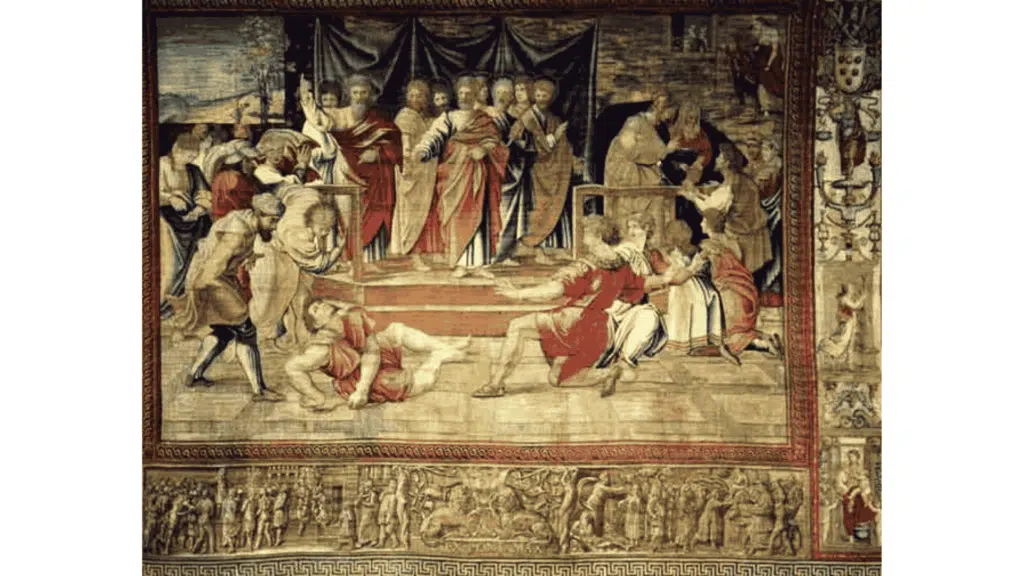
Source: italian-renaissance-art
A powerful story of truth and justice, this tapestry depicts Ananias falling after lying to the apostles. The crowd’s expressions range from fear to awe, giving the moment real tension.
Raphael balanced the chaos with clear structure, keeping the scene organized yet emotional. The contrast between shadow and light deepens the drama. It’s a vivid reminder that honesty lies at the heart of faith.
16. The Sacrifice at Lystra
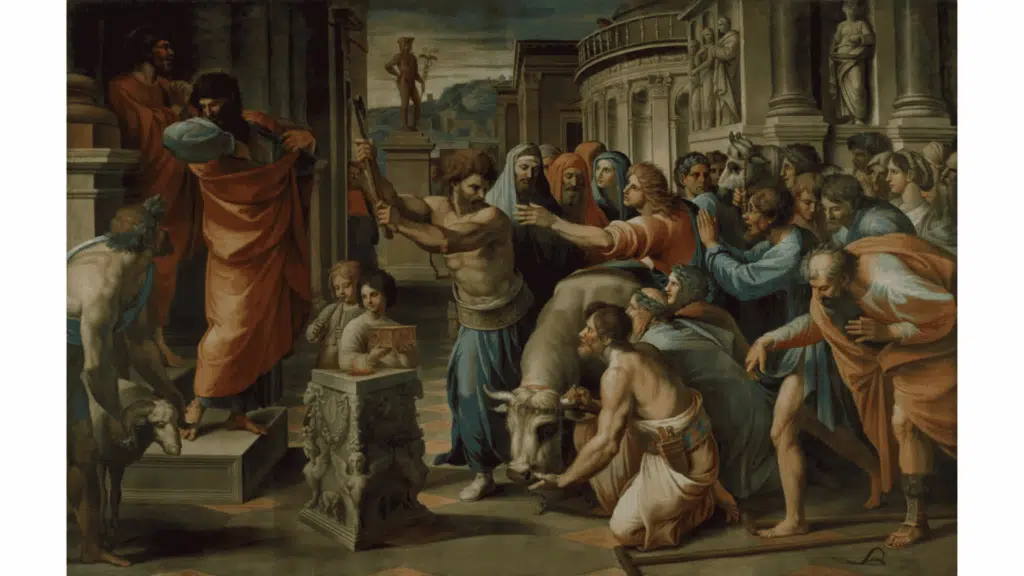
Source: royalacademy.org.uk
In this design, St. Paul and Barnabas are mistaken for gods after healing a crippled man. Raphael captures the confusion of the crowd through energetic poses and layered composition.
Every gesture tells a piece of the story from belief to misunderstanding. It’s one of Raphael’s most cinematic creations.
17. The Conversion of the Proconsul (Elymas Struck Blind)
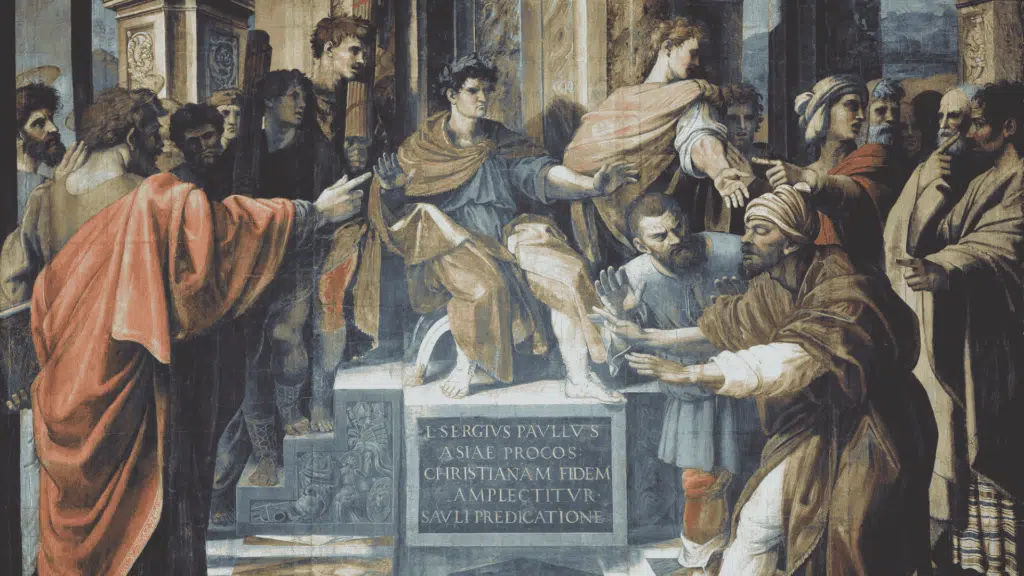
Source: vam.ac.uk
A dramatic moment where St. Paul blinds a magician who challenges him. Raphael filled the scene with strong diagonals and sharp gestures, creating instant tension.
The proconsul’s shocked face becomes the center of the story, surrounded by chaos and light.
18. The Stoning of St. Stephen
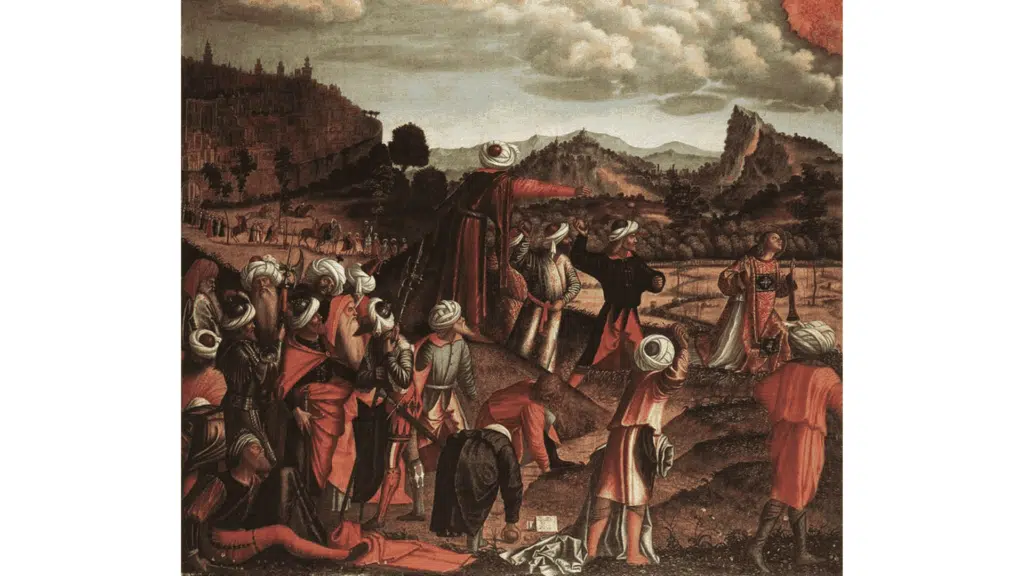
Source: meisterdrucke.ie
This design captures the first Christian martyrdom with power and restraint. The figures are arranged in balanced motion, stones raised mid-air, while heaven opens above.
Raphael used light to guide the viewer’s eyes between earth and sky. It’s a moving reflection on courage and faith under pressure.
19. Paul Preaching in Athens
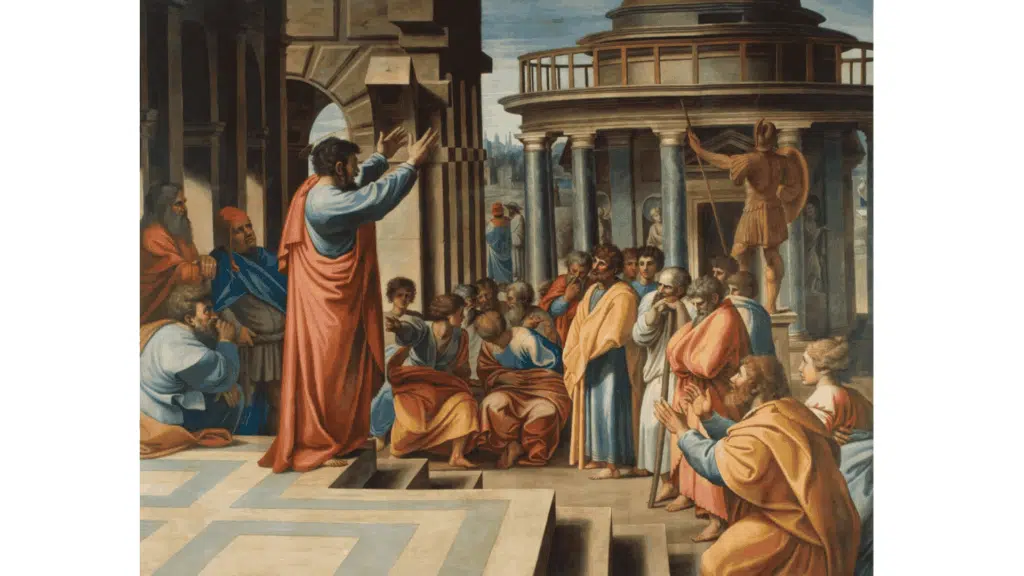
Source: royalacademy.org.
Set among classical columns, Paul speaks to a crowd of philosophers and citizens. The space feels open and calm, emphasizing reason and faith in conversation.
It captures the Renaissance ideal of wisdom shared through gentle persuasion.
20. The Death of Sapphira
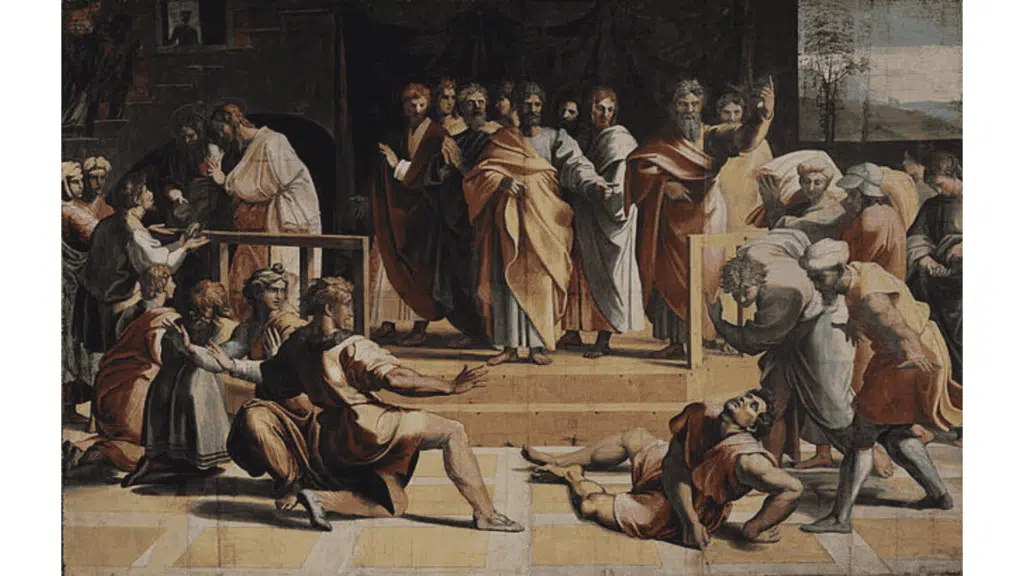
Source: wikiwand
This tapestry shows Sapphira collapsing after lying to the apostles about her donation. The surrounding figures react with shock and awe, mirroring the moral weight of the moment.
Raphael balanced emotion and structure, letting movement unfold naturally. The setting’s clear geometry keeps the scene grounded. It’s both a moral lesson and a study of human truth.
Each tapestry reflects Raphael’s mastery of storytelling, turning threads into living images. His designs changed the Sistine Chapel into a space where faith, art, and emotion meet in harmony.
Architectural Works by Raphael
Below are Raphael’s best-known architectural works, each showing how his vision extended beyond the canvas into real spaces that defined the Renaissance.
21. Chigi Chapel (Santa Maria del Popolo, Rome)
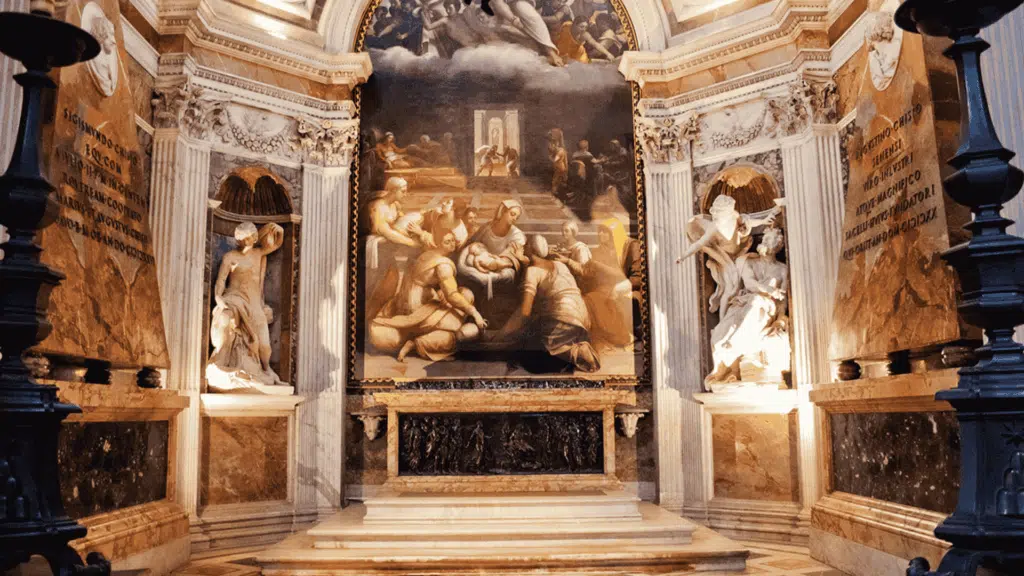
Source: rome-cabs.org
This chapel stands as one of Raphael’s greatest architectural achievements. It combines geometry, light, and sculpture in perfect balance.
The circular plan and harmonious proportions show how he applied his painter’s eye to design. It’s a living example of Raphael artwork brought into architecture.
22. St. Peter’s Basilica (Vatican City)
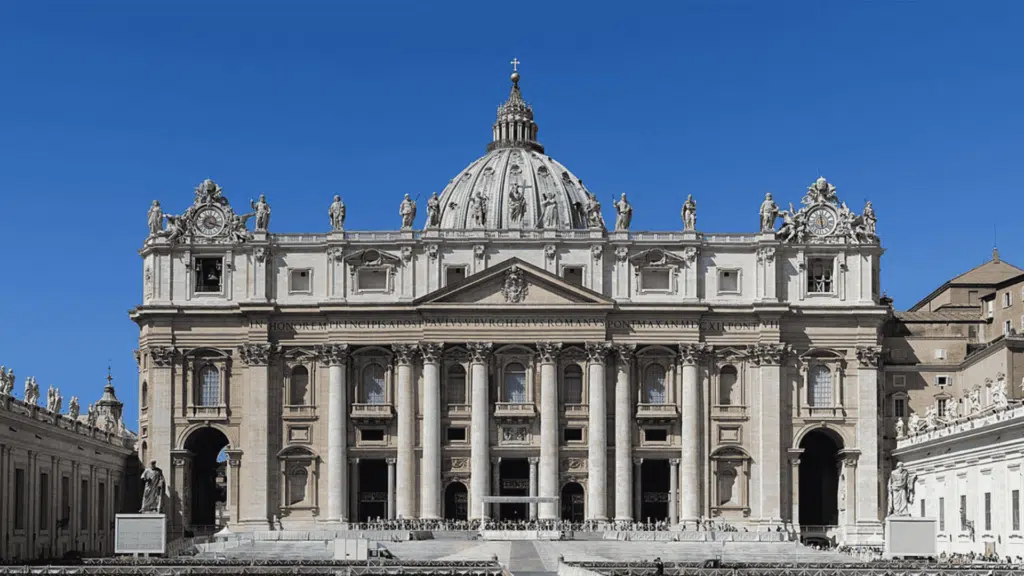
Source: wikipedia.org
After Bramante’s death, Raphael took over as chief architect for St. Peter’s Basilica. He reimagined the layout to make the interior feel more unified and welcoming. His designs emphasized symmetry, openness, and light.
Though later modified, his influence shaped the church’s charm.
23. Villa Madama (Rome)
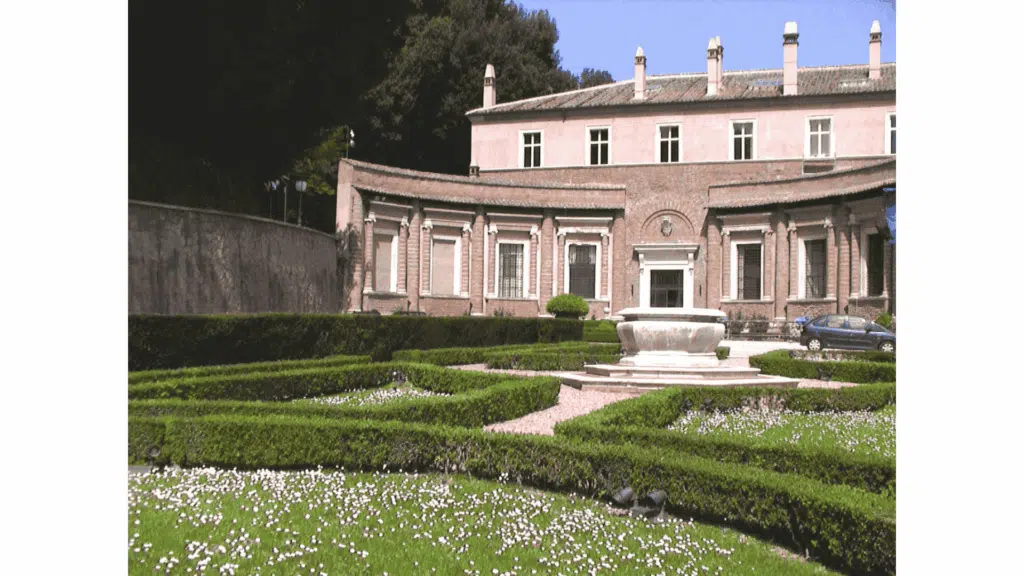
Source: gardenvisit
Designed for Cardinal Giulio de’ Medici, this villa was intended as a peaceful retreat outside Rome. Raphael envisioned open courtyards, decorated halls, and gardens that blended with nature.
The building’s elegant arches and frescoed interiors reveal his harmony between architecture and art.
24. Palazzo Pandolfini (Florence)
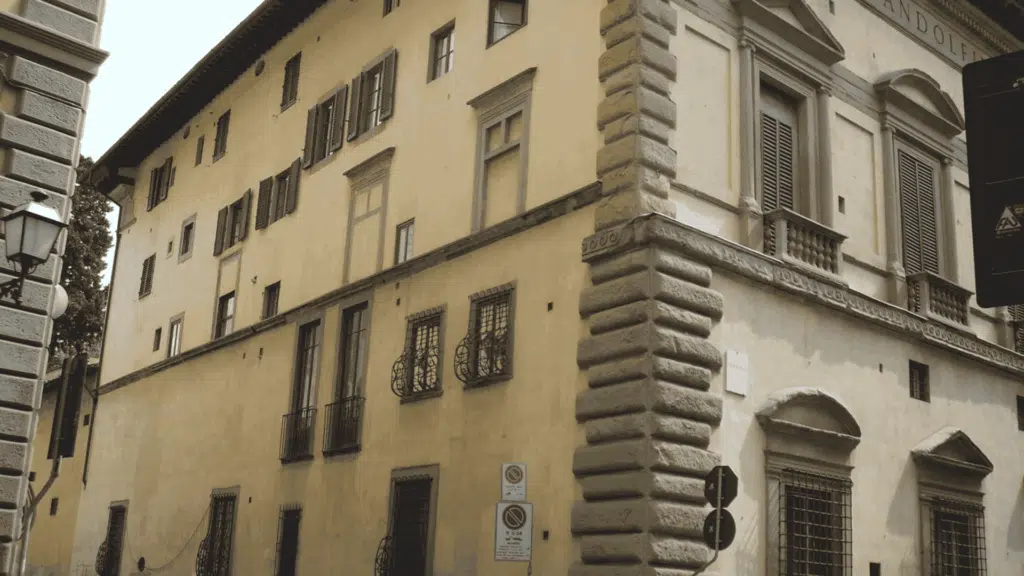
Source: wga.hu
This Florence residence is one of the clearest examples of Raphael’s architectural grace. The clean lines, arched windows, and perfect symmetry make it a study in balance.
The design blends strength with softness, echoing the same qualities found in his paintings.
25. The Tomb of Agostino Chigi (Santa Maria del Popolo, Rome)
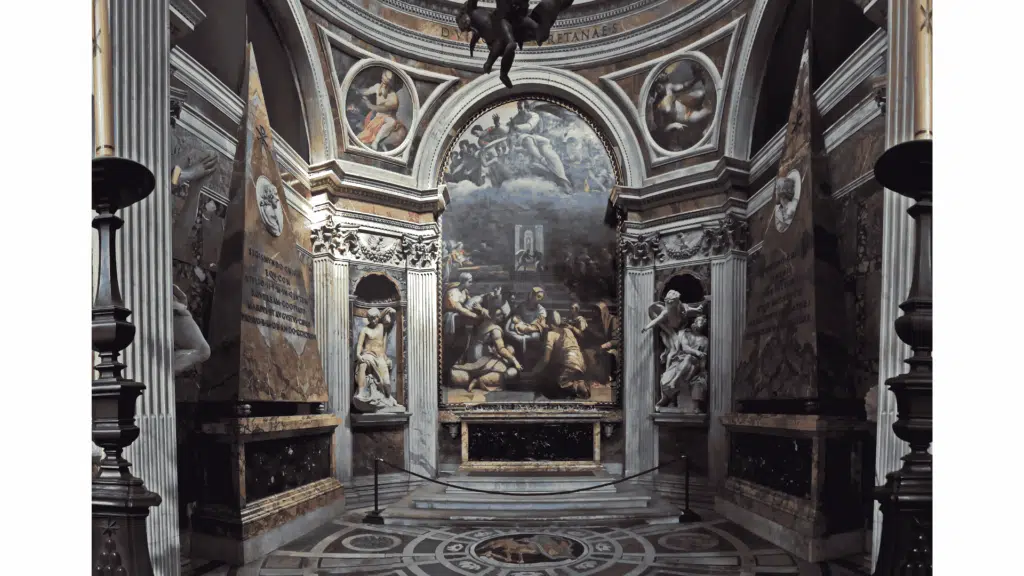
source: wikipedia.org
Raphael designed this tomb as part of the Chigi Chapel, blending sculpture and architecture seamlessly. The structure features classical columns and intricate decoration, framing the tomb as both art and devotion.
Its calm rhythm reflects Raphael’s focus on proportion and grace. It turned remembrance into a work of timeless beauty.
Raphael’s architectural works show that his eye for charm had no boundaries. Whether through brush or blueprint, he built peace into everything he touched, making art feel at home in both canvas and stone.
The Legacy of Raphael’s Artistic Universe
Raphael’s impact grew stronger, shaping how beauty, balance, and emotion are seen in art today. His work remains a timeless bridge between creativity and calm perfection.
- Raphael artwork continues to inspire artists, teachers, and historians for its harmony and human warmth. His balanced style still defines what many consider “classic beauty” in art.
- Raphael Sanzio’s paintings taught generations how emotion and structure can live together in a single frame. His sense of calm order became a model for centuries of European art.
- His influence reached beyond painting, like shaping sculpture, architecture, and even modern design through his focus on proportion and clarity.
- Art academies across Europe studied his techniques to understand how simplicity can feel powerful.
- Museums and exhibitions around the world still celebrate his name, reminding people that beauty doesn’t have to be loud to leave an impression.
- Raphael’s legacy lives on in the quiet details, such as the gentle gaze, the curve of a line, and the light that feels alive. All proving that art can speak softly and still last forever.
His art endures not just in museums but in the way people see balance and beauty today. Raphael artwork reminds that true art feels eternal because it speaks to the heart.
Bottom Line
Raphael artwork, from grand frescoes to gentle portraits continues to remind people that attractiveness can be thoughtful and human at the same time.
Through Raphael Sanzio’s paintings, tapestries, and architecture, he showed that art isn’t just seen, it’s felt.
His legacy lives on wherever peace and grace are valued. Raphael’s work continues to inspire both new artists and anyone who loves the quiet power of timeless creation.
Take a moment to go through his masterpieces, inspiring your own sense of balance and imagination every time you look at art.

